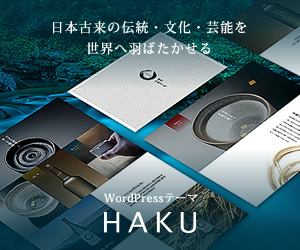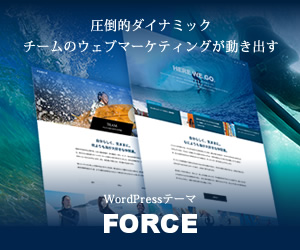This article explains the assumptions you need to know before you start working on SEO.
Knowing the right assumptions about SEO will definitely help you. If the assumptions here are wrong, you can end up wasting your time with ineffective SEO or incurring huge losses with spammy SEO.
Make sure you know the correct assumptions about SEO and only implement measures that make sense.
Premise 1. Searchers already want to know information
First of all, the basic premise is that people who search on search engines such as Google are already motivated to know specific information. It is only natural, since they are actively searching by typing in keywords.
For example, if a person searches for the keyword “easy way to quit smoking,” it is obvious that he or she is looking for a page or site that introduces an easy way to quit smoking.
If this is the case, then the first thing the site operator should do is to create a page that is highly relevant to the search keyword. It is important for SEO to make it intuitive for searchers to know that the information they are looking for is here.
Specifically, you should use
- Create a concise title that includes the keyword
- Only post content that is relevant to the search keyword
It is a good idea to keep the following in mind
Create concise titles that include keywords
The surest way to grab the attention of people searching for a particular keyword is to include the keyword in the title; Google is becoming more and more able to understand the content of a page even if the title does not contain the keyword.
However, as a general rule, you should include keywords in the title of your page. Searchers will click on pages that are relevant to the keywords they typed in. The best way to show that relevance is to include keywords in the title.
A person who searches for “how to quit smoking easily” is unlikely to miss the title “how to quit smoking easily and successfully”. This is because it contains the search keyword and is concise enough to be understood instantly. Searchers will immediately understand the relevance of such a title to the information they are looking for.
The following article is a good reference on how to create SEO-friendly titles.

For SEO, there is no need to have a bizarre or over-the-top title. The premise is that people who search for information already want to know it, so as long as it is relevant to what they are looking for, it is enough.
Only post content that is relevant to the search keywords
In addition to the title, the content of the page should also be created with relevance to the search keywords in mind.
This is because search users have a certain degree of clarity about the information they are looking for. When the information they are looking for is clear, if they are presented with information they are not looking for, the satisfaction level of searchers will drop drastically.
For example, if a searcher searches for the keyword “protein intake timing” and is presented with an endless summary of “protein is protein…”, he or she will close the page. That’s not what I want to know.
Therefore, it is necessary to create pages with a strong awareness of the relevance of search keywords and the needs of search users. This is very important because if you miss this point, it will be difficult to increase the inflow from search. In the example above, you should quickly present information on the timing of protein intake, and mention “only” that.
In the world of writing, there is a principle called “one article, one topic”, which means that you should only convey one message in one article. On a single page, limit your message to a single piece of content that is relevant to the search term.
The assumption is that people who search for information already want to know it, so only include information that they want to know on the page.
Premise 2. Text content is the most important
SEO-friendly content is still simple text content.
Google is getting better at understanding rich media content such as videos and images, but it is still not perfectly accurate. Content consisting of only videos and images is not a good match for search engines and should be avoided.
There are some SEO theories out there that say “adding lots of images will make your SEO stronger” or “inserting videos in your articles will improve your search rankings,” but there is absolutely no causal relationship with search rankings there.
Embedding videos from Youtube, Nico Nico Douga, etc. in an article may give a rich impression, but if the content of the article itself is useless, there is little point. However, if the content of the article itself is useless, there is little point. It takes a lot of time and effort.
In addition, Google will not appreciate a page that has almost no original text and is only composed by embedding videos and images uploaded to the web by others. Videos and images have no special SEO effect.
The basis of all content is text. There are very few sites that can stand on their own with only videos and images. Whether you are selling a product or sharing a philosophy, you need a detailed explanation in text. Whether you are selling a product or sharing a philosophy, you need detailed explanations in text. If you neglect this, it will be impossible to achieve results in SEO and business.
Premise 3. Imitating the competition is not effective SEO
There is a theory of SEO that goes something like this
Google will rank the pages that searchers are looking for, so you should mimic the trends of your top competitors
While not completely wrong, simply copying the trends of the top sites is a bit of an easy way to go, so be careful.
To begin with, it is not necessarily the case that the top pages are of high quality. It does not necessarily mean that the page is highly relevant to the search keywords, nor does it mean that the page contains information that searchers are really looking for. It may just be that there is no other page that can be ranked higher, so we’ll just put this one at the top.
In fact, I’m sure there are many people who have been disappointed by the lack of information they find in a search. In such cases, because there are no pages on the Web that are highly relevant to the search keyword, other pages with less relevance are simply displayed at the top.
In other words, simply copying the top sites will lead to the creation of pages that are useless to searchers.
Of course, examining the trends of competing pages in the search results will help you understand the needs of the search users contained in the keywords. It’s a good way to get a rough idea of what kind of information people want, but it doesn’t mean you have to copy your competitors’ pages. If you do that, you will most likely end up with a degraded copy of your competitor.
If you have a lot of experience in a particular field, you should have more faith in your own knowledge, experience, and common sense. Don’t be pulled in by the information in the search results, but create content that satisfies searchers more than 100% based on the sense that “People searching for this keyword would definitely want to know this”
This approach is recommended because it can guarantee specialization and originality, rather than just filling in the differences with the competition on the top search pages.
Premise 4: Creating specialized and original content is the best SEO
As I mentioned a little earlier, creating highly specialized and original content is the best SEO.
When we hear the word “SEO,” we tend to associate it with tricky technicalities and detailed techniques, but it really boils down to how to elicit positive emotions from the people who view your site and content.
Positive emotions include, for example, “You know a lot” and “This is very technical and worth reading. In order to elicit these emotions, the expertise of the content is important. Content that contains expert insights, considerations, and advice based on a wealth of knowledge and experience will generally be perceived as highly valuable, and it will also generate the feeling that it is different from articles on other sites, thus ensuring originality.
This will increase the chances of your content being cited and mentioned on social networking sites, and you will be recognized as an authoritative site and content. As a result, you will be trusted.
E-A-T is an acronym that stands for Expertise, Authoritativeness, and Trustworthiness. Increasing these three factors will have a positive impact on your search rankings. For more information, please check out the following article.

Among E-A-T, improving site specialization is particularly important. As your site becomes more specialized, its authority and credibility will naturally increase, so focus on creating specialized and unique content.
If you’re planning to outsource your content creation, you might want to be careful. This is because outsourced content providers do not have extensive knowledge and experience in a particular field, and are likely to deliver content that is just a collection of generalizations.
No matter how much such content is posted, it is unlikely to increase the expertise of the site. It will also be difficult to elicit positive emotions from readers if the content is just a generalization or a rehash of the competition.
If you hire an outsourcer, you may not get satisfactory content unless you provide a sufficient amount of background material and pay for them to do careful research. You may not get satisfactory content unless you provide enough background material and pay for careful research. The idea of “it’s too much trouble, so I’ll just outsource it and do it as cheaply as possible” is not going to work.
Ideally, you should write your own content, but if you really don’t have the resources, you should look for an expert writer in your field or consult with a production company that has such expert writers.
Premise 5: SEO is not about ranking first in search results
The goal of SEO is not to get to the top of the search results.
The goal is to get quality traffic from natural search that will lead to business, so there is no need to be obsessed with ranking high for certain big keywords.
Most of the sites should be getting most of their traffic from long-tail keywords, and I think that is the way it should be. Although the number of searches is small, the number of long-tail keywords is abundant. Even if the volume of each of them is small, they can become a large pillar of inflow by accumulating in number.
Moreover, since long-tail keywords are compound words of three or four words, the purpose of the search user is clear. The keyword “job change” has too broad a meaning and the purpose of searchers varies, but the long tail keyword “how to change jobs in your 30s” has a much more limited purpose. This makes it easier to create content, and the conversion rate is generally higher.
Since SEO is meaningless if it does not ultimately lead to sales, Aiming for the number one spot with broad and vague big keywords is actually not that cost-effective. If there were to be a keyword that absolutely must be ranked first, it would be the so-called “designated search keyword” such as a company name or brand name.
In the first place, there is no surefire way to rank first in SEO. No matter how much careful research you do, no matter how much effort you put into your content, there is no guarantee that you will rank first. And even if you do, there is no way to know if you will be able to maintain the number one position forever.
It is true that when you see articles about success stories like “#1 for the fiercely competitive keyword “XXX”! You may feel like, “I want to be number one too! I want to be number one too! However, we don’t recommend just aiming for the number one spot, because it is uncertain, difficult, and the cost-benefit ratio is unclear.
The goal of SEO is not to achieve the number one position in search results, but to obtain a steady stream of quality traffic from natural search that will lead to business. This goal can be achieved even if you don’t rank first in the search results, so you don’t have to be obsessed with improving the rankings of specific keywords. If you create high quality, professional content for a variety of long-tail keywords that lead to business, you should see good results.
Summary
So far, we’ve given you five prerequisites that you need to know before you start working on SEO.
- People who search already want to know information
- Text content is paramount
- Mimicking the competition is not effective SEO
- Creating professional and unique content is the best SEO
- Aiming for the number one search result is not SEO
If you understand these premises, you will be less likely to be confused about SEO.




































